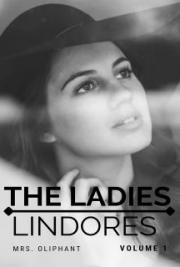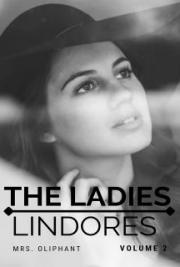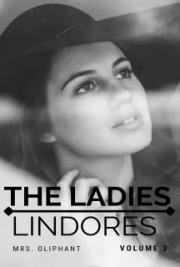'Alas For This Grey Shadow, Once A Man!'
In the month of November which followed Pierston was lying dangerously ill of a fever at his house in London.
The funeral of the second Avice had happened to be on one of those drenching afternoons of the autumn, when the raw rain flies level as the missiles of the ancient inhabitants across the beaked promontory which has formed the scene of this narrative, scarcely alighting except against the upright sides of things sturdy enough to stand erect. One person only followed the corpse into the church as chief mourner, Jocelyn Pierston-fickle lover in the brief, faithful friend in the long run. No means had been found of communicating with Avice before the interment, though the death had been advertised in the local and other papers in the hope that it might catch her eye.
So, when the pathetic procession came out of the church and moved round into the graveyard, a hired vehicle from Budmouth was seen coming at great speed along the open road from Top-o'-Hill. It stopped at the churchyard gate, and a young man and woman alighted and entered, the vehicle waiting. They glided along the path and reached Pierston's side just as the body was deposited by the grave.
He did not turn his head. He knew it was Avice, with Henri Leverre--by this time, he supposed, her husband. Her remorseful grief, though silent, seemed to impregnate the atmosphere with its heaviness. Perceiving that they had not expected him to be there Pierston edged back; and when the service was over he kept still further aloof, an act of considerateness which she seemed to appreciate.
Thus, by his own contrivance, neither Avice nor the young man held communication with Jocelyn by word or by sign. After the burial they returned as they had come.
It was supposed that his exposure that day in the bleakest churchyard in Wessex, telling upon a distracted mental and bodily condition, had thrown Pierston into the chill and fever which held him swaying for weeks between life and death shortly after his return to town. When he had passed the crisis, and began to know again that there was such a state as mental equilibrium and physical calm, he heard a whispered conversation going on around him, and the touch of footsteps on the carpet. The light in the chamber was so subdued that nothing around him could be seen with any distinctness. Two living figures were present, a nurse moving about softly, and a visitor. He discerned that the latter was feminine, and for the time this was all.
He was recalled to his surroundings by a voice murmuring the inquiry: 'Does the light try your eyes?'
The tones seemed familiar: they were spoken by the woman who was visiting him. He recollected them to be Marcia's, and everything that had happened before he fell ill came back to his mind.
'Are you helping to nurse me, Marcia?' he asked.
'Yes. I have come up to stay here till you are better, as you seem to have no other woman friend who cares whether you are dead or alive. I am living quite near. I am glad you have got round the corner. We have been very anxious.'
'How good you are!. . . And--have you heard of the others?'
'They are married. They have been here to see you, and are very sorry. She sat by you, but you did not know her. She was broken down when she discovered her mother's death, which had never once occurred to her as being imminent. They have gone away again. I thought it best she should leave, now that you are out of danger. Now you must be quiet till I come and talk again.'
Pierston was conscious of a singular change in himself, which had been revealed by this slight discourse. He was no longer the same man that he had hitherto been. The malignant fever, or his experiences, or both, had taken away something from him, and put something else in its place.
During the next days, with further intellectual expansion, he became clearly aware of what this was. The artistic sense had left him, and he could no longer attach a definite sentiment to images of beauty recalled from the past. His appreciativeness was capable of exercising itself only on utilitarian matters, and recollection of Avice's good qualities alone had any effect on his mind; of her appearance none at all.
At first he was appalled; and then he said, 'Thank God!'
Marcia, who, with something of her old absolutism, came to his house continually to inquire and give orders, and to his room to see him every afternoon, found out for herself in the course of his convalescence this strange death of the sensuous side of Jocelyn's nature. She had said that Avice was getting extraordinarily handsome, and that she did not wonder her stepson lost his heart to her--an inadvertent remark which she immediately regretted, in fear lest it should agitate him. He merely answered, however, 'Yes; I suppose she is handsome. She's more--a wise girl who will make a good housewife in time. . . . I wish you were not handsome, Marcia.'
'Why?'
'I don't quite know why. Well--it seems a stupid quality to me. I can't understand what it is good for any more.'
'O--I as a woman think there's good in it.' 'Is there? Then I have lost all conception of it. I don't know what has happened to me. I only know I don't regret it. Robinson Crusoe lost a day in his illness: I have lost a faculty, for which loss Heaven be praised!'
There was something pathetic in this announcement, and Marcia sighed as she said, 'Perhaps when you get strong it will come back to you.'
Pierston shook his head. It then occurred to him that never since the reappearance of Marcia had he seen her in full daylight, or without a bonnet and thick veil, which she always retained on these frequent visits, and that he had been unconsciously regarding her as the Marcia of their early time, a fancy which the small change in her voice well sustained. The stately figure, the good colour, the classical profile, the rather large handsome nose and somewhat prominent, regular teeth, the full dark eye, formed still the Marcia of his imagination; the queenly creature who had infatuated him when the first Avice was despised and her successors unknown. It was this old idea which, in his revolt from beauty, had led to his regret at her assumed handsomeness. He began wondering now how much remained of that presentation after forty years.
'Why don't you ever let me see you, Marcia?' he asked.
'O, I don't know. You mean without my bonnet? You have never asked me to, and I am obliged to wrap up my face with this wool veil because I suffer so from aches in these cold winter winds, though a thick veil is awkward for any one whose sight is not so good as it was.'
The impregnable Marcia's sight not so good as it was, and her face in the aching stage of life: these simple things came as sermons to Jocelyn.
'But certainly I will gratify your curiosity,' she resumed good- naturedly. 'It is really a compliment that you should still take that sort of interest in me.'
She had moved round from the dark side of the room to the lamp--for the daylight had gone--and she now suddenly took off the bonnet, veil and all. She stood revealed to his eyes as remarkably good-looking, considering the lapse of years.
'I am--vexed!' he said, turning his head aside impatiently. 'You are fair and five-andthirty--not a day more. You still suggest beauty. YOU won't do as a chastisement, Marcia!'
'Ah, but I may! To think that you know woman no better after all this time!'
'How?'
'To be so easily deceived. Think: it is lamplight; and your sight is weak at present; and. . . Well, I have no reason for being anything but candid now, God knows! So I will tell you. . . . My husband was younger than myself; and he had an absurd wish to make people think he had married a young and fresh-looking woman. To fall in with his vanity I tried to look it. We were often in Paris, and I became as skilled in beautifying artifices as any passee wife of the Faubourg St. Germain. Since his death I have kept up the practice, partly because the vice is almost ineradicable, and partly because I found that it helped me with men in bringing up his boy on small means. At this moment I am frightfully made up. But I can cure that. I'll come in to-morrow morning, if it is bright, just as I really am; you'll find that Time has not disappointed you. Remember I am as old as yourself; and I look it.'
The morrow came, and with it Marcia, quite early, as she had promised. It happened to be sunny, and shutting the bedroom door she went round to the window, where she uncovered immediately, in his full view, and said, 'See if I am satisfactory now--to you who think beauty vain. The rest of me--and it is a good deal--lies on my dressing-table at home. I shall never put it on again--never!'
But she was a woman; and her lips quivered, and there was a tear in her eye, as she exposed the ruthless treatment to which she had subjected herself. The cruel morning rays--as with Jocelyn under Avice's scrutiny--showed in their full bareness, unenriched by addition, undisguised by the arts of colour and shade, the thin remains of what had once been Marcia's majestic bloom. She stood the image and superscription of Age--an old woman, pale and shrivelled, her forehead ploughed, her cheek hollow, her hair white as snow. To this the face he once kissed had been brought by the raspings, chisellings, scourgings, bakings, freezings of forty invidious years--by the thinkings of more than half a lifetime.
'I am sorry if I shock you,' she went on huskily but firmly, as he did not speak. 'But the moth frets the garment somewhat in such an interval.'
'Yes--yes! . . . Marcia, you are a brave woman. You have the courage of the great women of history. I can no longer love; but I admire you from my soul!'
'Don't say I am great. Say I have begun to be passably honest. It is more than enough.'
'Well--I'll say nothing then, more than how wonderful it is that a woman should have been able to put back the clock of Time thirty years!'
'It shames me now, Jocelyn. I shall never do it any more!'
* * *
As soon as he was strong enough he got her to take him round to his studio in a carriage. The place had been kept aired, but the shutters were shut, and they opened them themselves. He looked round upon the familiar objects--some complete and matured, the main of them seedlings, grafts, and scions of beauty, waiting for a mind to grow to perfection in.
'No--I don't like them!' he said, turning away. 'They are as ugliness to me! I don't feel a single touch of kin with or interest in any one of them whatever.'
'Jocelyn--this is sad.'
'No--not at all.' He went again towards the door. 'Now let me look round.' He looked back, Marcia remaining silent. 'The Aphrodites--how I insulted her fair form by those failures!--the Freyjas, the Nymphs and Fauns, Eves, Avices, and other innumerable WellBeloveds--I want to see them never any more! . . . "Instead of sweet smell there shall be stink, and there shall be burning instead of beauty," said the prophet.'
And they came away. On another afternoon they went to the National Gallery, to test his taste in paintings, which had formerly been good. As she had expected, it was just the same with him there. He saw no more to move him, he declared, in the time-defying presentations of Perugino, Titian, Sebastiano, and other statuesque creators than in the work of the pavement artist they had passed on their way.
'It is strange!' said she.
'I don't regret it. That fever has killed a faculty which has, after all, brought me my greatest sorrows, if a few little pleasures. Let us be gone.'
He was now so well advanced in convalescence that it was deemed a most desirable thing to take him down into his native air. Marcia agreed to accompany him. 'I don't see why I shouldn't,' said she. 'An old friendless woman like me, and you an old friendless man.'
'Yes. Thank Heaven I am old at last. The curse is removed.'
It may be shortly stated here that after his departure for the isle Pierston never again saw his studio or its contents. He had been down there but a brief while when, finding his sense of beauty in art and nature absolutely extinct, he directed his agent in town to disperse the whole collection; which was done. His lease of the building was sold, and in the course of time another sculptor won admiration there from those who knew not Joseph. The next year his name figured on the retired list of Academicians.
* * *
As time went on he grew as well as one of his age could expect to be after such a blasting illness, but remained on the isle, in the only house he now possessed, a comparatively small one at the top of the Street of Wells. A growing sense of friendship which it would be foolish to interrupt led him to take a somewhat similar house for Marcia quite near, and remove her furniture thither from Sandbourne. Whenever the afternoon was fine he would call for her and they would take a stroll together towards the Beal, or the ancient Castle, seldom going the whole way, his sciatica and her rheumatism effectually preventing them, except in the driest atmospheres. He had now changed his style of dress entirely, appearing always in a homely suit of local make, and of the fashion of thirty years before, the achievement of a tailoress at East Quarriers. He also let his iron-grey beard grow as it would, and what little hair he had left from the baldness which had followed the fever. And thus, numbering in years but two-and-sixty, he might have passed for seventy-five.
Though their early adventure as lovers had happened so long ago, its history had become known in the isle with mysterious rapidity and fulness of detail. The gossip to which its bearing on their present friendship gave rise was the subject of their conversation on one of these walks along the cliffs.
'It is extraordinary what an interest our neighbours take in our affairs,' he observed. 'They say "those old folk ought to marry; better late than never." That's how people are-wanting to round off other people's histories in the best machine-made conventional manner.'
'Yes. They keep on about it to me, too, indirectly.'
'Do they! I believe a deputation will wait upon us some morning, requesting in the interests of matchmaking that we will please to get married as soon as possible. . . . How near we were to doing it forty years ago, only you were so independent! I thought you would have come back and was much surprised that you didn't.'
'My independent ideas were not blameworthy in me, as an islander, though as a kimberlin young lady perhaps they would have been. There was simply no reason from an islander's point of view why I should come back, since no result threatened from our union; and I didn't. My father kept that view before me, and I bowed to his judgment.'
'And so the island ruled our destinies, though we were not on it. Yes- -we are in hands not our own. . . . Did you ever tell your husband?'
'No.'
'Did he ever hear anything?'
'Not that I am aware.'
Calling upon her one day, he found her in a state of great discomfort. In certain gusty winds the chimneys of the little house she had taken here smoked intolerably, and one of these winds was blowing then. Her drawing-room fire could not be kept burning, and rather than let a woman who suffered from rheumatism shiver fireless he asked her to come round and lunch with him as she had often done before. As they went he thought, not for the first time, how needless it was that she should be put to this inconvenience by their occupying two houses, when one would better suit their now constant companionship, and disembarrass her of the objectionable chimneys. Moreover, by marrying Marcia, and establishing a parental relation with the young people, the rather delicate business of his making them a regular allowance would become a natural proceeding.
And so the zealous wishes of the neighbours to give a geometrical shape to their story were fulfilled almost in spite of the chief parties themselves. When he put the question to her distinctly, Marcia admitted that she had always regretted the imperious decision of her youth; and she made no ado about accepting him.
'I have no love to give, you know, Marcia,' he said. 'But such friendship as I am capable of is yours till the end.'
'It is nearly the same with me--perhaps not quite. But, like the other people, I have somehow felt, and you will understand why, that I ought to be your wife before I die.'
It chanced that a day or two before the ceremony, which was fixed to take place very shortly after the foregoing conversation, Marcia's rheumatism suddenly became acute. The attack promised, however, to be only temporary, owing to some accidental exposure of herself in making preparations for removal, and as they thought it undesirable to postpone their union for such a reason, Marcia, after being well wrapped up, was wheeled into the church in a chair.
* * *
A month thereafter, when they were sitting at breakfast one morning, Marcia exclaimed 'Well--good heavens!' while reading a letter she had just received from Avice, who was living with her husband in a house Pierston had bought for them at Sandbourne.
Jocelyn looked up.
'Why--Avice says she wants to be separated from Henri! Did you ever hear of such a thing! She's coming here about it to-day.'
'Separated? What does the child mean!' Pierston read the letter. 'Ridiculous nonsense!' he continued. 'She doesn't know what she wants. I say she sha'n't be separated! Tell her so, and there's an end of it. Why--how long have they been married? Not twelve months. What will she say when they have been married twenty years!'
Marcia remained reflecting. 'I think that remorseful feeling she unluckily has at times, of having disobeyed her mother, and caused her death, makes her irritable,' she murmured. 'Poor child!'
Lunch-time had hardly come when Avice arrived, looking very tearful and excited. Marcia took her into an inner room, had a conversation with her, and they came out together.
'O it's nothing,' said Marcia. 'I tell her she must go back directly she has had some luncheon.'
'Ah, that's all very well!' sobbed Avice. 'B-b-but if you had been m- married so long as I have, y-you wouldn't say go back like that!'
'What is it all about?' inquired Pierston.
'He said that if he were to die I--I--should be looking out for somebody with fair hair and grey eyes, just--just to spite him in his grave, because he's dark, and he's quite sure I don't like dark people! And then he said--But I won't be so treacherous as to tell any more about him! I wish--'
'Avice, your mother did this very thing. And she went back to her husband. Now you are to do the same. Let me see; there is a train--'
'She must have something to eat first. Sit down, dear.'
The question was settled by the arrival of Henri himself at the end of luncheon, with a very anxious and pale face. Pierston went off to a business meeting, and left the young couple to adjust their differences in their own way.
His business was, among kindred undertakings which followed the extinction of the Well-Beloved and other ideals, to advance a scheme for the closing of the old natural fountains in the Street of Wells, because of their possible contamination, and supplying the townlet with water from pipes, a scheme that was carried out at his expense, as is well known. He was also engaged in acquiring some old moss-grown, mullioned Elizabethan cottages, for the purpose of pulling them down because they were damp; which he afterwards did, and built new ones with hollow walls, and full of ventilators.
At present he is sometimes mentioned as 'the late Mr. Pierston' by gourd-like young artcritics and journalists; and his productions are alluded to as those of a man not without genius, whose powers were insufficiently recognized in his lifetime.
----- The End ----







